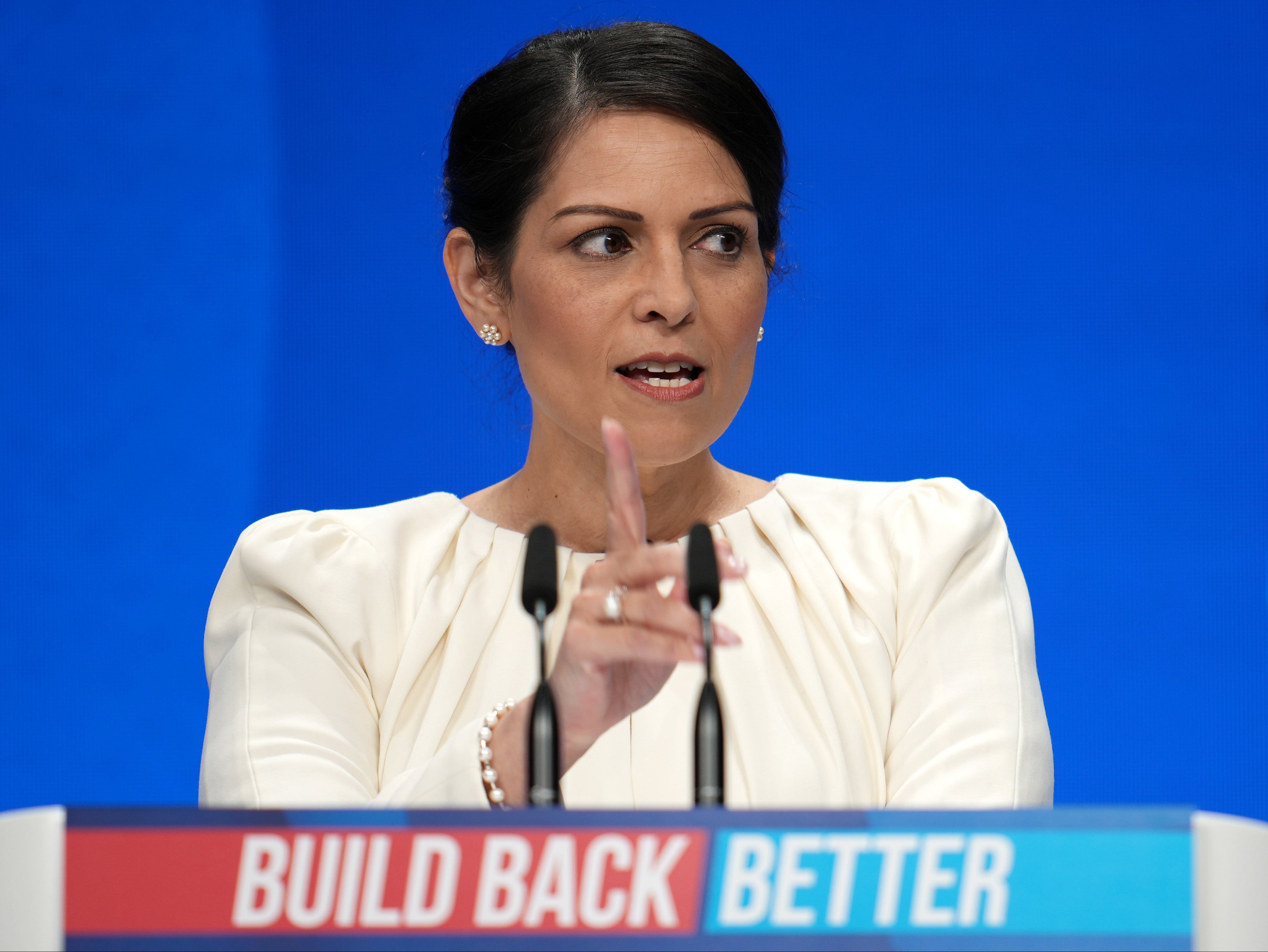Priti Patel’s inquiry into Sarah Everard’s killer could prove a turning point for women and girls
Editorial: It could broadly follow the example of the Stephen Lawrence inquiry, with its famous charge of ‘institutional racism’ levelled at the police

Even Priti Patel gets it right, sometimes. The inquiry the home secretary has announced into the “systematic failures” of the police that led to the murder of Sarah Everard is a proportionate and timely one – for the time being, at any rate. The remit of the official inquiry seems apt in the circumstances.
Logically, there will be two parts to the exercise. First, attention will be focused on why it came to be that Wayne Couzens was taken on as a police officer, and, moreover, why he was allowed to serve despite disturbing allegations and rumours surrounding him, and why essential vetting procedures were not properly followed. Why, in other words, was he at large and left free to meticulously plan his heinous crimes?
The facts of the murder case are not in doubt, but there are pressing matters concerning why Couzens behaved the way that he did, and why three police forces (Civil Nuclear, Kent and the Met) failed to act against him.
The second part of the investigation will be broader, taking on the findings in the first phase. No doubt it will concern itself with police culture and the possibility of entrenched, if not institutional, misogyny persisting despite efforts to change the ethos of the Metropolitan Police, the drive to recruit more women, and the fact that the force has been headed by a woman for some years.
Ms Patel was also right to leave open the option of converting this official inquiry into a full public inquiry, given what more may emerge. An official inquiry will be quicker to report and reach conclusions; but the full powers of a public inquiry on a statutory footing will allow for evidence to be taken and witnesses to be cross-examined.
That may become both necessary and desirable. It could, indeed, turn from asking detailed, searching questions about the failures in a single case of murder into a more extensive inquiry.
In this way, it could broadly follow the example of the Stephen Lawrence Inquiry, chaired by Sir William Macpherson, which reported in 1999.
That report, with its famous charge of “institutional racism” levelled at the police, proved to be a turning point – not just for the police, but for British society as a whole. The murder of Sarah Everard raises analogous and similarly uncomfortable questions about attitudes towards violence against women and girls.
In the meantime, Ms Patel would be well advised to use her crime bill to toughen laws on indecent exposure, harassment, and to improve the conviction rate for rape. Women and girls should not have to wait any longer for the protection they deserve.



Join our commenting forum
Join thought-provoking conversations, follow other Independent readers and see their replies
Comments